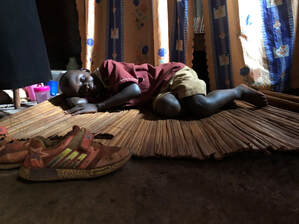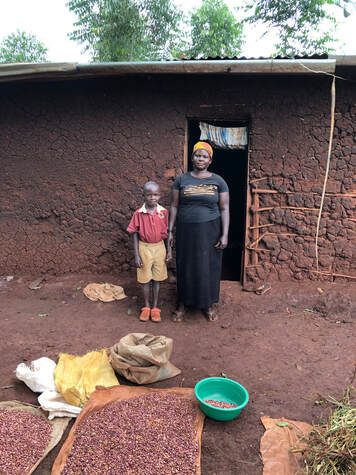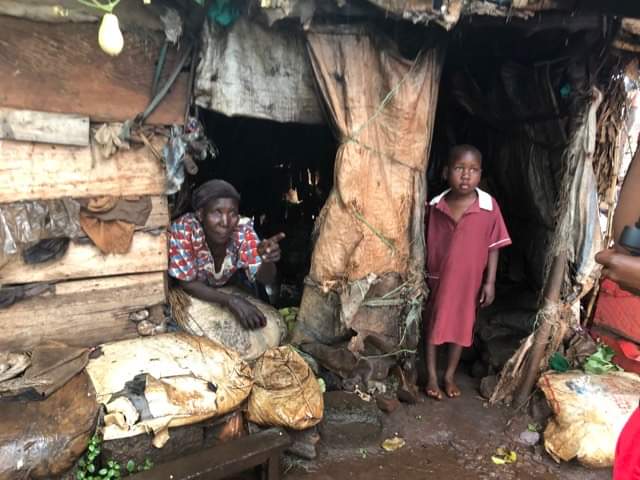|
What do you think of when you hear the word home? Maybe you think of your childhood bedroom, your relaxing bathroom, or your kitchen table where many family meals are shared. This past week we did a few home visits where some of the sponsored kids live. The picture painted in the minds of most people in the US when we hear the word home is quite contrasting to what we saw. The first few homes were one-room structures made mostly of mud and sticks. The mothers greeted us warmly as soon as we arrived and generously began showing us around their homes. While US kitchens are often nestled somewhere indoors, the kitchen is usually the first "room" you notice in rural Uganda, as it's often outside the home. Generally, the kitchen is comprised of a firepit, sticks, rocks, charcoal, and a few pots and plates, either a few feet from the structure or sometimes even in the home. The bathroom is also outdoors, although the "toilet" is really just the ground and the "shower" is generally a bucket of water, hidden behind a partially enclosed area. Indoors, there was usually either one or two rooms. A storage room and a "living room," where the family sleeps at night. Beds are made of rolled-up bamboo mats that on the floor when it was time to sleep. Many times multiple children share one mat. This example of material poverty, however, was juxtaposed with the pride, happiness, and welcoming spirit of the mother who greeted us. “Home” means something very different here. Home means having a community of families coming together to help raise children who can contribute to the wellbeing of said community in the future. It is comprised of many neighbors coming together, gathering what little they have, and contributing to one another. I fear that my home community is so much more focused on material wellbeing that our sense of togetherness is sacrificed. The people in Uganda take great care of each other and when one family unit is in need, others come to their aid with no questions asked.  This aspect was highlighted in the last home we visited. Before we arrived, Mariah, our primary sponsorship coordinator, turned to me and said, “you need to prepare yourself for this one”. That statement was alarming as the homes we had just toured weren’t exactly easy to see from my Western perspective. We pulled up along the main road to a tiny structure made up of coal bags and leaves. The bedroom was the size of a small closet where sacks are laid down and the two share the spot and hope for safety through the night. They did not have any sort of bathroom structure, so the grandmother and girl have to shower at night with a bucket and try to dodge any light source in order to protect what little privacy they have left. This was the home of a sponsored 6-year-old student and her grandmother. The girl’s father was killed in a car accident and the mother remarried and abandoned the child. A story that is all too common here. The grandmother was very frail, sickly, and therefore couldn’t work. The only way they receive food/shelter is from a good Samaritan across the street. This lady owns a small store and allows the grandmother to sell charcoal for her and in return, she gives them some food to eat. We went to give our thanks to this store owner and we had a great discussion about how we must take care of each other here on Earth and she only hoped that someone would do the same for her if the roles were reversed. God did not create us alone. Whether our houses are made of mud, coal sacks, or concrete and plaster, the community of people God has entrusted to us is what makes that space home. As difficult as that was to see, it was another eye-opener as to what is truly important in this life: loving one another. Whether that be through sponsoring a child from afar or taking care of your neighbor just across the street. These are the means by which God leads us away from our material homes on Earth, to our spiritual home with him in Heaven. Comments are closed.
|
AboutHearts & Hope is a nonprofit organization focused on unlocking the potential of people in Uganda through relationships with people in the US. Follow Us
Archives
March 2022
Categories
All
|
Develop Relationships - Create Hope - Transform Lives
|




 RSS Feed
RSS Feed
